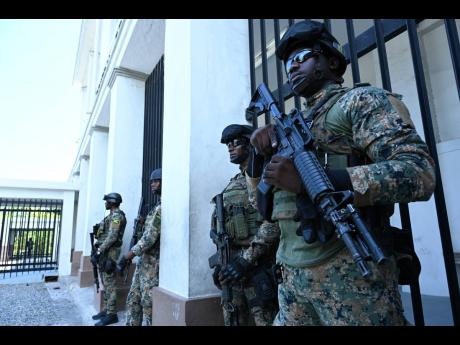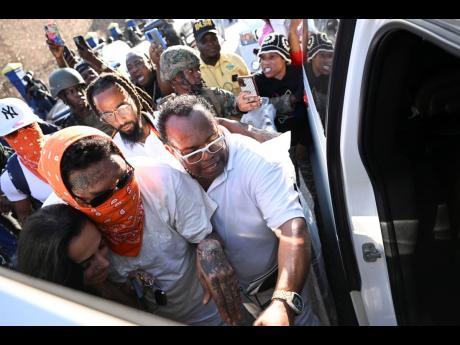Kartel case makes argument for retaining Privy Council, say attorneys
Fresh on the heels of the decision by the Court of Appeal to free Vybz Kartel and his co-appellants, at least two senior lawyers are of the view that the ruling reinforces the need for Jamaica to continue to retain the Privy Council as its final court.
Adidja ‘Vybz Kartel’ Palmer, Shawn ‘Shawn Storm’ Campbell, Andre St John, and Kahira Jones, who were convicted for the 2011 murder of Clive Williams, were freed yesterday after the court entered verdicts of acquittal against them.
Jones, who is serving an 18–year sentence for wounding with intent stemming from a 2009 incident in which he shot and injured a man in Waterford, Portmore, St Catherine, will not be freed.
The Court of Appeal, which initially had upheld the men’s conviction, was forced to decide on whether the men were to be retried or freed. This after the Privy Council in March quashed the conviction but remitted the matter to the local appellate court for a decision on retrial.
The court ruled that the trial judge should have dismissed a tainted juror, Livingston Cain, who was later found guilty of accepting a bribe to try to influence other jurors in the case.
King’s Counsel Tom Tavares Finson, who was one of the lawyers who represented Kartel at the trial phase, welcomed the decision.
“Certainly as lead defence attorney at trial, I believe the judgment is in the interest of justice and lends credibility to the various objections which Kartel’s defense team had raised at trial,” he said.
But while noting that the Privy Council had initially quashed Kartel’s conviction, he said, “I think the fair treatment of this kind of high-profile matter by the Privy Council is another reason why many Jamaicans, including myself, support its retention as our country’s final appellate court.
Expressing similar sentiments, Tamika Harris, who was also part of the defence team at the trial phase, said the case “anchors a belief that we must continue to rely on the monarch to assist us in our legal and justice system”.
According to her, one of the impacts of the decision is that many more people will be convinced of the need to retain the Privy Council.
Justice system effective
In the same vein, Harris said that the judgment also reinforced the fact that the country’s justice system is effective and capable of delivering sound judgments.
“A large section of the society thought that proper justice would not be dispelled in our local courts and that the judges would focus more on the number of murders in Jamaica and the images and reputation of Vybz Kartel rather than on the legal issues before the court.”
Court of Appeal President Marva McDonald Bishop, in handing down the ruling yesterday, said, “Having weighed everything in the balance, the weight is against a new trial.”
While highlighting that the features of the case bore every hallmark of a deliberate attack and barefaced defiance of law and order, she said, “The court is, therefore, satisfied that the nature, the seriousness and prevalence of the alleged offence in this case are powerful factors that weighed in favour of a retrial.”
On the other hand, she said, “The court, however, finds that there are several equally powerful factors which when combined, militate against ordering a new trial.”
She listed factors such as the prosecution’s insufficient and inadequate account of the availability of the witnesses and trial exhibits; the unavailability of witnesses and exhibits, which was relied upon by the defence in the first trial; the financial impact on the appellants; and the impact on the court resources if a trial was ordered, which swung the pendulum in the former convicts’ favour.


